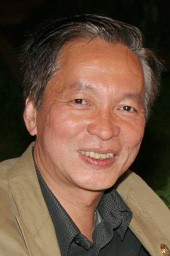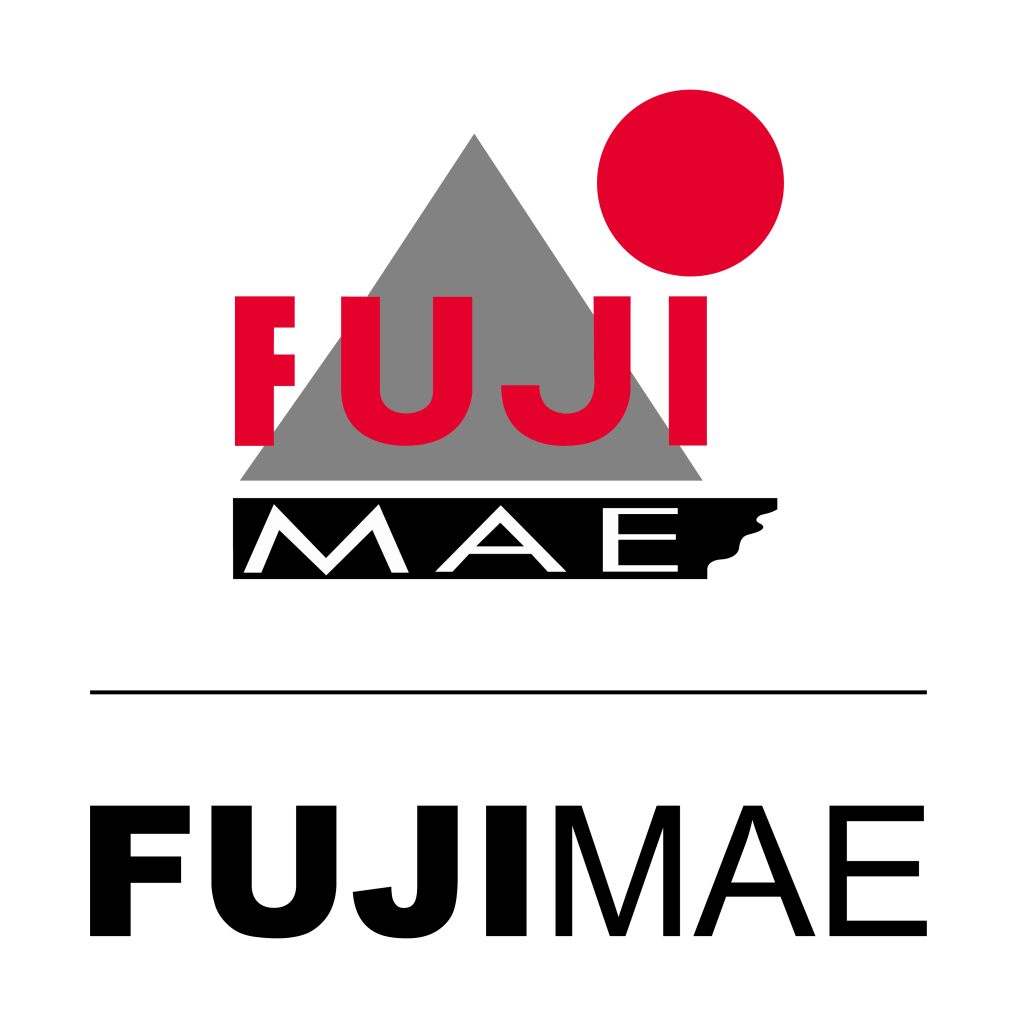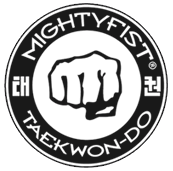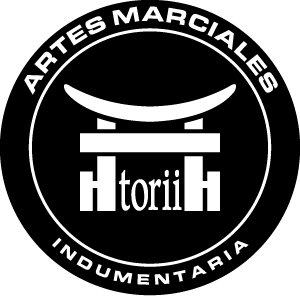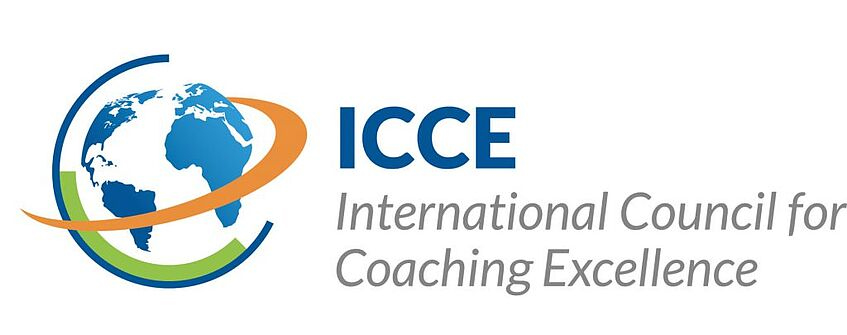The Taekwon-Do Way of Life: What is it?
Background
My first message about the Taekwon-Do Way of Life appeared on the ITF Website in January 2007. It started with an overview of what it means to make ITF Taekwon-Do your way of life. Then I shared my own experiences and how Taekwon-Do has helped me to get through some very challenging periods in my life. After a brief look at the ancient philosophies that our Founder General Choi Hong Hi studied and used as a foundation for the Do, I asked the question “Why do we practice Taekwon-Do?” The message continued with an examination of how we can work on self improvement with the goal of making our environment a better place. You may recall that I recommended making a plan and taking it one step at a time.
The second message, in March 2007, was about how to live the Taekwon-Do way of life in our training. This text was in the form of a conversation with Dr. Janel Gauthier, who at that time was Chair of the ITF Ethics & Discipline Committee and a member of the working group for the Teaching the Do Program. You will recall that I used an illustration of The Circle of Taekwon-Do Activities to show how the Do is central to our Taekwon-Do training and explored the application of the Do in a number of aspects of our training.
Please note: If you read these messages when they were first posted, you may notice that they now have a different look. This is because they have been reformatted for distribution by our instructors to their students as educational documents. The text itself has not been modified.
Since I first wrote about living the Taekwon-Do way of life, the ITF has started to put more emphasis on the Do. In fact, since 2003 we have been talking about the importance of the Do to participants in the International Instructor Courses.
In 2009 we will begin to offer a basic course about the Do to our members who have earned their red belt or black belts. The format will be similar to that of the course offered at International Instructor Courses. These courses will explain what the Do is, how we can apply it (including practical examples), and the benefits. Information about these courses will be communicated to our National Associations in the near future.
Our plans for the future include the introduction of more advanced courses about the Do.
In this message, I will continue to explore what it means to live the Taekwon-Do way of life.
You may wish to have a look at the summary before reading the complete text.
Click here to view the summary.
The Do is a philosophy, and I am aware that some readers may think the study of any philosophy is too theoretical or simply an intellectual exercise for academics, but I know from personal experience that the Do has practical applications and numerous benefits. My goal in this message is to share my reflections on modern life and to show you what it means to live the Taekwon-Do way on a practical level.
There is no mystery behind the ITF Taekwon-Do philosophy. The Do is not a matter of faith, and you are not being encouraged to adopt it as a new religion. The Do is based on basic universal values that are recognized and promoted by most religions, along with a generous dose of common sense.
What is it like to live the Taekwon-Do way of life?
We could compare the Taekwon-Do way of life to jogging on a long, smooth, well-paved road.

If you are well prepared, if you are healthy and have a positive attitude, if you have trained well, if you are physically and mentally strong, if you are able to deal with the changing environment and any obstacles you encounter, you will be able to stay on the road, enjoying both the physical activity and the changing scenery. Eventually you will reach your final destination with a sense of accomplishment.
This comparison helps us to understand the importance of proper preparation and planning to reach our goals.
Of course, since the road means your life, the end of the road would be the end of your life. So your goal is certainly not to run as fast as you can and reach the end of the road as soon as possible! Living the Taekwon-Do way of life is not a race. You want to keep jogging steadily down that road, living a happy and satisfying life.
An individual who chooses to live the Taekwon-Do way of life:
- has a well-balanced life,
- trains to reach the goal of a healthy mind in a healthy body,
- sets a minimum goal of earning black belt status, then perseveres to attain higher levels as his circumstances allow,
- naturally demonstrates the five tenets in all aspects of his life,
- has a happy family life,
- has a satisfying social life,
- always does a good job, whether as a student or a teacher, as an employee or an administrator,
- cultivates an appreciation for beauty as expressed in the arts: music, paintings, dance, architecture, and others.


Playing music to communicate the art for better quality of life!
- never stops learning and seeking self-improvement,
- makes a positive contribution to his community.
To summarize: an individual who lives the Taekwon-Do way of life has a happy life.
How do you define happiness?

Open arms under beautiful nature: an expression of happiness!
If you think back over your life, you will realize that your definition of happiness has evolved as you have matured and your circumstances have changed.
For an infant
happiness may be as basic as having enough to eat, feeling safe, and being surrounded by love. An infant is certainly not worrying about whether his parents have a luxury automobile or designer clothes!
For young children
the definition of happiness is similar but more likely to be influenced by their surroundings. They may be the target of marketing for toys and foods. They may want to have the same things their friends have.
Of course, the life of a child in a war-torn country is very different from that of a child of wealthy parents in a developed country. Nevertheless, they both can be happy.
In the teenage years
many young people are “trying to find themselves”. They are going through a period of rapid physical growth and may find it difficult to adjust. Also, they may be trying to come to grips with serious questions about their future and about life in general.
Advertising and lifestyle marketing are everywhere. They specifically target young people and try to convince them that being happy depends on “looking good”, wearing the “coolest” clothing, and owning the latest cellular phone or a sporty car. The result is endless consumption for those who have the money to buy these things and frustration for those who cannot afford it.
Friends become very important in the teenage years. There is a great need to belong and to be accepted as part of the group, especially for teens who lack low self-confidence. Sometimes a teenager will make unwise decisions and get in trouble. That results in unhappiness for the young person and for all those who care about him or her.
Practicing Taekwon-Do and living the Taekwon-Do way of life will help teenagers get through this phase and encourage them to reach psychological maturity.
We should not forget that, in countries around the world, many low-income families cannot afford to pay for their teenagers to school or to participate in sports; they have to work to help support their families. I encourage our ITF clubs to identify these young people and develop programs that will allow them to benefit from Taekwon-Do training. This is an example of how we can develop the fourth facet of ITF Taekwon-Do: as a tool for social development.
An adult’s definition of happiness
can be influenced by the same factors. In addition, an adult has responsibilities to his or her family and to the community they live in. Since they have links with many more people, they are more likely to become involved in problem situations that can cause significant stress. On the other hand, they may also find that some of these relationships become sources of happiness.
With its emphasis on consumption, our modern affluent society creates “needs” that are essentially superficial. Some people actually make themselves unhappy by wishing for material things that wouldn’t bring them happiness even if they did possess them. It is impossible to be truly happy when you are never satisfied with what you have.
This reminds me of the Buddhist teaching that there are three sources of human suffering: unending desires, lack of self-control, and ignorance (not knowing that what you are doing is not good). The remedy Buddha suggested is to “abandon your ego”. This means being satisfied with what you have, working to improve your self-control, and continuously seeking to increase your knowledge and understanding.
What a contrast to what seems to be the motto of many people in the 21st century: “I, Me and Myself”. Which approach do you think will make you truly happy?
It is essential to stop and ask yourself: “What do I want from life?” and to identify what is really important to you. I have observed that many people tend to complicate their lives unnecessarily. They try to do so much and then are unhappy because they haven’t done anything really well. I would say that, in general, simple is better.
 |
| “Joy is not in things; it is in us.” |
| Richard Wagner, 1813 – 1883 a German musician and composer known primarily for his operas |
Be aware of negative influences
Putting material things first in our lives and getting caught up in the race to accumulate wealth has a negative influence that can prevent us from having a happy life. But some other negative influences that may not be so easy to identify.
A very powerful influence, especially for young people, is the people you associate with. It is important to have friends and an active social life, but it is essential to choose friends who will help you reach your goals, not people who will ridicule you for practicing self-discipline and having goals in your life or who may encourage you to engage in dangerous activities such as taking illegal drugs.
Popular culture seems to be everywhere. For example: Superstar singers are famous around the world. Blockbuster movies are distributed in most countries. Fashion is a huge industry. We can certainly enjoy listening to music, watching movies, and wearing flattering clothing, but we need to ask ourselves what type of influence these things are having on us.
Does the music you like have lyrics that celebrate violence and encourage disrespect and hate for women or others? Do the words really express your values?
Do the movies you watch contain graphic violence? If you feel disgusted after watching a movie, stop and ask yourself why you watched it. Was that a good use of your time and energy?
Do you really need to follow the “latest” trends in clothing and shoes? Possessing them may make you happy for a short time but, as we all know, fashion changes quickly. Very soon those items will no longer be the “latest” fashion, and you will be yearning to buy something else.
There is no need to dress like everyone else. It is possible to be well dressed on a budget. By learning which styles and colors are flattering for you, you can dress in good taste without over spending.
I encourage you to identify these and any other negative influences in your life and make a plan to deal with them.
Stay healthy
Where I live in the province of Quebec (Canada), during the first few days of the New Year people greet each other with wishes for happiness and success, and they always make sure to add a wish for good health because everyone knows that poor health makes it more difficult to achieve happiness and success.
But we need more than good wishes to ensure that we remain healthy. Let’s start with the basics:
- Make sure you get enough rest
This sounds simple. Shouldn’t we naturally go to sleep when we are tired? Unfortunately, many of us have such busy lives that we don’t always make time for adequate rest. Some medical studies have shown that many of us have accumulated a “sleep deficit” and this has a negative effect on physical and mental health. - Be physically active, but don’t exaggerate
Learn to really feel how your body is reacting and adjust your level of activity accordingly.
You participate in Taekwon-Do classes regularly and do personal training as well. You want to improve your physical condition, so you will challenge yourself to do more and to do it better.
However, so-called “hard” training often results in injuries and trying to “work through the pain” can aggravate an injury, prolong the time necessary to heal, and delay your return to active training. - Eat a sensible diet
Here again, you want to take a balanced approach.
It is important to learn about nutrition and to keep up with the latest research. You can do this by reading books and consulting various Websites.
But be careful to avoid fads in diet and using popular but unproven supplements.
Your body is a delicate system and each of us has different needs, so you need to take personal responsibility for keeping your body working properly.
 |
| “If we could give every individual the right amount of nourishment and exercise, not too little and not too much, we would have found the safest way to health.” |
| Hippocrates, a Greek physician who lived from 460 to 370 BC considered to be the father of modern medicine |
- Don’t poison your body by abusing drugs
We need to be careful about taking drugs, whether they are obtained illegally or prescribed by a doctor. In both cases, there is the danger of developing a physical and/or psychological dependency, which could cause you to lose self-control. I don’t need to describe the negative impacts drug addiction has on individuals and societies. They are well documented.
Here again, it is better to stop and think about the consequences before you act.
Happiness is relative
How we define happiness evolves as we grow up, but it also changes according to the conditions we are living in, good or bad.
It is essential to realize that happiness is relative. It is not always possible to make big changes in your circumstances – although you should certainly do what you can to make things better – but I know from personal experience that, even in extremely difficult circumstances, it is possible to motivate yourself to keep a positive attitude and to find some degree of happiness.
What happiness really means to you is a good subject for meditation, which will help you define your goals and motivate you to work to achieve them.
How to achieve happiness
Here is some advice about how to achieve happiness:
- Live according to the universal values expressed by the Do.
- Seek balance and harmony.
- Whatever you do, do it with passion and dedication.
- Take care of your physical and mental health.
- Cultivate a sense of humor.
- Choose your friends wisely; surround yourself with people who will help you.
- Be an authentic person.
Don’t rely only on your physical appearance to make a good impression.
Become aware of your strengths and your weakness, then work to become the best person you can be. - Be honest with yourself and with those around you.
There is no shame in admitting you have a problem and asking for help. You cannot make the problem go away by ignoring it, and trying to pretend everything is fine will be very stressful. - Never stop learning.
Ask others to recommend books or do a search on the Web about a subject that interests you.
This is all very good advice and these factors are important, but you are probably thinking, “It can’t be that simple. I won’t find balance and harmony just because I know I need it.” And you are right. You need a plan.
To be, to behave, to do, and to lead:
I recommend using Confucius’s concept of life; the four stages are illustrated below:

The first stage is TO BE and it concentrates on the individual, emphasizing the need to be modest and humble.
TO BE starts with an honest self-evaluation and some pertinent questions: Who am I? What are my strengths and weaknesses? What is my goal in life? What can stop me from reaching that goal? What are my limitations? How have my life experiences affected me?
When it comes to making decisions, be aware that you are influenced by four factors:
- your values,
- your conscience,
- your feelings, and
- your experience.
Before you make a decision, ask yourself questions like these:
- How do my values relate to this decision?
- What is my conscience telling me?
- How do I feel about it?
- Have I made a similar decision in the past?
- What did I learn from that experience?
Considering these factors will help you to make wiser decisions and to make progress in self-improvement.
Next you add Stage two: TO BEHAVE. It concentrates on the individual and his relations with those close to him: family, friends, and neighbors. By applying the Do you can create a harmonious family life and a satisfying social life.
A good way to start is by applying what is often called the Golden Rule:
Another way of expressing this concept is, “Walk a mile in his shoes”. A similar concept is taught by most religions and philosophies.
Thinking about the feelings of those around us and the effect our actions may have on them is called empathy. Cultivating empathy is guaranteed to make us better people.
Stage three is TO DO. When you are satisfied that you are making good progress in the first two steps, it is time to expand your sphere of influence further.
Confucius taught that each individual needs to make a contribution to the society he lives in by the work he does. To be prepared to make your contribution, you must seek out the schooling and training needed for the work you have chosen. Use your education and expertise to make improvements in your environment and your community while you earn an income and support your family. The more effort you put into your work, the more successful you will be.
And the final stage is to add TO LEAD:
The following quotation from Confucius reminds us of what should be the ultimate goal for everyone who aspires to be a leader, a goal that is also expressed in the ITF Taekwon-Do Student’s Oath:
“Work with wisdom and devotion to bring peace to the world.”
We must not make the mistake of thinking that the only real leaders are the powerful politicians, the business people, and the religious leaders who make decisions affecting millions of people. Each of us can be a leader in our own way. For example:
- Taekwon-Do training is excellent preparation for being a leader. Students are introduced to different levels of leadership as they progress through the color belt levels, starting by helping their instructors to teach other students.
- You will find that participating in Taekwon-Do demonstrations gives you opportunities to learn to control your stress and give a good performance in front of a crowd.
- You can be a leader in your school or in your neighborhood by organizing a useful activity(such as recycling paper, glass, and plastic), and you can have fun at the same time.
- Non-profit organizations, including Taekwon-Do clubs, often need volunteers to serve on their Boards of Directors or to help to organize events. This can be a rewarding experience, allowing you to gain experience while at the same time making a positive contribution to life in your community.
- An important way to be a leader is to stand up for what you know is right, and you don’t have to be famous or powerful to do this.
For example, it seems that people everywhere tell jokes that make fun of the people in another ethnic group. Unfortunately, such jokes can be very hurtful to those people and can cause lasting resentment.
We know that it is no longer acceptable to make fun of people who are different, and the ITF Constitution specifically prohibits discrimination on the grounds of sex, race, language, religion, and others.
So what should you do when a friend tells such a joke? Will you ignore your conscience and laugh along with the others?
What if you tried in a tactful way to make your friends aware of the need to show respect for others? That would be demonstrating leadership.
These are just a few examples. I encourage you to identify opportunities that will allow you to demonstrate leadership in your own life.
Remember: You do not become a leader automatically because of your age or experience. You need to learn to be a leader. It is essential that a leader show respect for others, and their respect is something you must earn. The defining qualities of a true leader are honesty, modesty, humbleness, generosity, and compassion. A leader who is competent but lacking in these human qualities could be more likely to abuse his power and that would be dangerous for those who follow him.
By the way, did you notice that in Confucius’s concept of life you don’t progress through the four stages one at a time? You do have to start with stage 1 TO BE, then stages 2, 3, and 4. But even when you progress to stage four, you must never stop working on stages one, two, and three.
Benefits of Living the Taekwon-Do Way of Life
Since my wife My and I have raised our children in the Taekwon-Do way of life, when I was writing this article I asked Joliette and Nicolas about the benefits they have identified.
My daughter Joliette mentioned that practicing Taekwon-Do has encouraged her to develop self-discipline and that has helped her to be successful with her studies and in her career. She first noticed this when she was in secondary school, because some other students who had not acquired self-discipline found it very difficult to do all the work and study properly for exams.
I have noticed that we human beings have a natural tendency to be lazy. This means that a person who has developed the self-discipline to work efficiently and successfully complete a project definitely has an advantage. Joliette has a career in occupational therapy. She is married with a young daughter and another baby due soon. She and her husband François have a plan to open a centre that will offer Taekwon-Do training in combination with occupational and other therapies with the goal of helping adult clients to make improvements to their health and wellbeing.

Jasmine Beaudin-Trân performs flying side peircing kick
I can see how Joliette’s education has influenced the way she is raising her daughter. Jasmine is being raised in a spirit of healthy discipline, and she is a happy child.
My son, Nicolas and I often train together. As a teenager, Nicolas made rapid progress in Taekwon-Do. He participated in Taekwon-Do competitions and went on to teach and coach. His success in Taekwon-Do built up his self-confidence. Nicolas has a very positive attitude and has grown into a mature, responsible adult. He is now 25 years old and runs his own business as well as teaching Taekwon-Do.
As you can probably guess, I am very proud that my children have grown up to be well-balanced adults who know how to work hard but also how to enjoy life.
I am also grateful that Taekwon-Do has provided the way of life that has made this possible.
Conclusion
With the three articles on this subject, I think I have given you a good description of what it means to live the Taekwon-Do way of life.
An essential component is learning to distinguish what is good (right) from what isbad (wrong), based on the principles of the Do.
Do what is good. Try not to do anything bad. But no one is perfect, so if you do something that is wrong you should feel a sense of shame. This will encourage you to do better in the future.
As you grow in knowledge and experience in Taekwon-Do and in life, you will find it becomes easier to make wise decisions. As the saying goes, “Practice makes perfect.”
Eventually it will become natural to make wise decisions. Then you will be truly living the Taekwon-Do way of life and you will be setting a good example for others.
Remember: Your goal is to have a happy and satisfying life, and the ITF is here to help you achieve that goal.
All the best to everyone,
Master Trân Triêu Quân
President
Quebec city (Canada),
November 3rd, 2008

